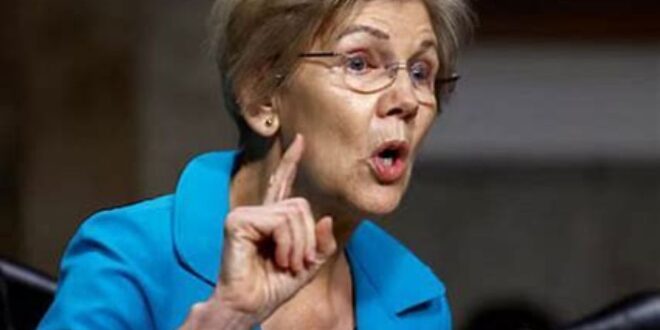Senator Elizabeth Warren has called on the Senate to delay a key cryptocurrency bill, citing concerns over a potential conflict of interest involving the Trump family. In a recent statement, Warren argued that the bill, which is set to regulate the cryptocurrency industry, could disproportionately benefit entities with close ties to former President Donald Trump, raising questions about fairness and transparency in the legislative process.
The Bill at the Heart of the Debate
The proposed cryptocurrency bill seeks to establish a comprehensive framework for regulating digital assets, addressing everything from consumer protection to anti-money laundering measures. As cryptocurrencies continue to grow in prominence, lawmakers have expressed a need for clearer regulations to avoid potential risks associated with the industry’s rapid expansion.
However, the bill has encountered significant opposition, particularly from those wary of its potential ties to high-profile political figures, including the Trump family. Critics like Senator Warren argue that certain provisions in the bill could benefit companies with indirect connections to Trump, potentially leading to a conflict of interest.
Warren’s Concerns Over Family Ties
In her statement, Warren expressed concerns that the bill might be designed to favor businesses with financial interests that align with the Trump family. She pointed to reports of Trump-affiliated entities, such as Trump Organization-linked investment firms, exploring cryptocurrency ventures and partnerships with crypto companies that could stand to gain from favorable regulations.
“It’s deeply troubling to see legislation that could give special treatment to companies tied to former political leaders, especially when we’re talking about an industry as volatile and influential as cryptocurrency,” Warren said. She has called for a thorough investigation into the bill’s provisions and a pause on its advancement until any potential conflicts of interest are fully examined.
The Crypto Industry’s Influence
The cryptocurrency sector has been lobbying heavily in Washington to influence the legislative landscape, and some companies with connections to the Trump family have become increasingly involved in the crypto space. While there is no direct evidence of collusion, Warren and other critics have raised concerns that these links could lead to legislation that benefits a select few rather than the broader public.
Warren’s objections highlight the growing tension between regulators and the rapidly evolving crypto industry, which has been criticized for its lack of transparency and oversight. As the industry matures, lawmakers are grappling with how to strike a balance between fostering innovation and ensuring consumer protection.
Bipartisan Support for the Bill
Despite Warren’s objections, the crypto bill has garnered significant bipartisan support, with many senators eager to establish clear regulatory guidelines for the burgeoning sector. Advocates argue that the bill will help protect investors and prevent illegal activities, such as fraud and money laundering, which have plagued the crypto industry.
Proponents of the bill also emphasize the potential for economic growth, pointing to the increasing adoption of cryptocurrencies by both retail investors and institutional players. Some senators have dismissed Warren’s concerns, arguing that the bill is based on sound policy and not influenced by political conflicts.
However, Warren’s calls for a delay suggest that the debate over the bill’s potential implications for transparency and fairness is far from over. The issue of conflicts of interest in crypto regulation is likely to remain a key point of contention as the Senate moves forward with its deliberations.
What’s Next for the Crypto Bill?
As the Senate continues to debate the cryptocurrency bill, the potential influence of political ties on legislative outcomes will undoubtedly remain in the spotlight. Senator Warren’s calls for a pause in the process reflect the growing concerns over the intersection of politics and the cryptocurrency industry.
Whether the Senate will heed Warren’s call to delay the bill remains to be seen, but one thing is clear: the scrutiny of conflicts of interest in crypto regulation is only likely to intensify. As lawmakers work to establish a regulatory framework for digital assets, transparency and fairness will be critical to ensuring that the benefits of cryptocurrency innovation are accessible to all—not just a select few with political connections.
 Business Sandesh Indian Newspaper | Articles | Opinion Pieces | Research Studies | Findings & News | Sandesh News
Business Sandesh Indian Newspaper | Articles | Opinion Pieces | Research Studies | Findings & News | Sandesh News



